Dear all,
I’ve been back from the Republic of Georgia a few weeks now and have been trying to find the time and more honestly the emotional energy to share my impressions with you. Most of you know that Georgia for me has been a love affair since almost the first day my organization, the American Jewish Joint Distribution Committee (JDC) parachuted me into Tbilisi in 2006. I arrived in Georgia to spend over a year with sleeves rolled up working in local communities to help nurture young leaders and empower the poor and vulnerable. While I am proud of what I helped build there Georgia and its people gave back to me in adventure, friendship and hospitality far more than I could ever repay.
Any of you who have talked to me about my experiences have heard me wax poetic about the stunning natural beauty of the country: To the west lies the subtropical coast line of the Black Sea, to the north the dramatic and passionate Caucasus mountain chain and east lies rolling wine country with endless vineyards finally giving way to the starkly beautiful desert along the Azerbaijani border.
The Georgians, too have a tremendous and visible culture which is very ancient. Their religion, their literature, their language, their very existence as a nation are all for more ancient than even their large Russian neighbor (Tbilisi is 800 years older than even Moscow and is considered the "new" Georgian capital!). The Georgian language is a linguistic marvel seemingly unique and unrelated to any other language grouping on the planet. Georgians take great pride in this and it has no doubt played a large role in maintaining their cohesiveness as a people (much the same way as Hebrew has done for the Jewish people) again through many centuries of upheaval and destruction. Not least among the singular facts about Georgia is that it survives at all. Fought over by the great empires of the Romans, Persians, Turks, Mongols, Arabs and Russians to name only a few, it was sacked, destroyed and rebuilt countless times. There is a psychological strength that comes from such a history, such continuity, such coherence in the face of overwhelming odds. It is certainly a history which resonated with me in my time there as I reflected on the similarities of this narrative with that of my own people and Israel.
Incidentally the Jewish community in Georgia is over 2,600 years old and have enjoyed a long and peaceful (as much as the average Georgian anyway) history in the country. This is unheard of in almost any other country of the former Soviet Union where anti-semitism is endemic, rife and painfully obvious and too often proudly expressed. These attitudes hold no sway in Georgia and I was amazed once again at the tolerance of the Georgian people on this last trip as well. Even during a time of war, misery and occupation while I could feel currents of bitterness and anti-Russian sentiment swirling around me the people seemed very able to separate the Russian people from its government- and certainly there was no enmity directed at the large Russian minority living (also quite peacefully) in the country. Speaking Russian, playing Russian songs or expressing admiration for its literature were not and is not an issue. We did not acquit ourselves half so well after 9/11
I believe in this country.Returning after nearly a year away from what became a second home was an emotional experience. I had been overwrought and worried for 2 weeks while fighting raged and I was either unable to contact friends and loved ones in the country or was intensely focused trying to put together various evacuation plans for my friends who are Georgian nationals (most of which were conversations with myself as Georgians being very patriotic refused to leave their country in the face of invasion even at the pleas of very well meaning friends from abroad).
My best friend there sent her children to the countryside to try and get them away from the oncoming bombs, another friend whose family hails from Gori was unable to reach them after the cell phone towers were bombed in the city…all he knew is that they were cowering in a basement somewhere in the city waiting for the invading army to arrive. Most ex-pats fled by plane before the airport was closed or made a run by car for the Armenian border. For countless others, nearly 200,000 displaced at the peak of the conflict the nightmare was only beginning.
In Georgia proper (not in the contested region of South Ossetia where the conflict sparked off) close to 150,000 people, mostly ethnic Georgians fled bombing campaigns and later inebriated bands of Russian irregular forces and the marauding bands of militias that followed in their wake. Incited by propaganda about atrocities committed by the Georgian army these groups and other opportunistic foreign mercenaries took the opportunity to loot, burn, rape and murder their way through ethnic Georgian villages.
I returned to Georgia to assess the humanitarian crisis that quickly followed on the heels of the fighting and make recommendations about how the JDC could quickly intervene to help the most vulnerable. Tbilisi was suddenly flooded with tens of thousands of desperate refugees- crowded into abandoned buildings and school gymnasiums- without enough food, water, sanitation or beds. In most instances these people were severely traumatized and unable to assimilate what they had witnessed or the terrible conditions which they now were forced to live in.
In one collective center I visited, Isani, in an abandoned old Soviet military hospital, one man described that after days of hiding he and his family and neighbors were forced to flee their village after the stench of dead bodies became unbearable. Now close to 700 people were crammed into this abandoned building with no doors or windows or protection of any kind from the elements and the oncoming winter. There was no running water and 700 people shared one outdoor water tap for all their cooking and hygienic needs. Six latrines dug into the ground served as toilet facilities for all these people. There was no electricity and as dusk set in I had trouble navigating my way safely around the exposed wires and broken glass throughout the building where the children with their always amazing resilience were making attempts to cavort and play.
Many of these refugees were from the greenbelt of Georgia, they were hard working and used to being self-sufficient. Forced to sit idly by dependent on handouts with little access to information about their homes or futures and only their recent trauma to replay in their minds on an endless loop it was apparent that severe anxiety and depression had rapidly set in. Parents worried for their children whose educations were now interrupted. Pregnant mothers fretted about the living conditions in which they would have to give birth and worried at having to put their toddlers on the cold cement floor to sleep because there were not enough cots or over elderly parents who were weak or ill and needed medicines that were not available. The JDC and our local partners in the Georgian Orthodox church were the only charities reaching out to the refugees of Isani at the time. In a country where religious faith is revered but diversity respected and honored it seemed very appropriate to me that two faith based organizations from different traditions would join hands to work together for a common good.
Almost all we spoke with at Isani expressed the most frustration at having nothing to do: they wanted to work, improve their living conditions, and provide for their families- to regain some sense of control over their destinies and feel dignified again but they had no means of doing so.
During our visit a group of refugee women approached us at the center with a tentative but hopeful plea: they wanted to start a sewing collective to make blankets for all 700 people in the collective center to offer some protection for their families against the oncoming winter. Many observers had come and told the refugees what they thought they needed but none had stopped to listen before to what they themselves identified as their most pressing needs. We sat down together with the group of women and figured out what would be involved in undertaking their proposal.
It would cost only $20 per piece—including the costs of materials and refurbishing the barren room in which the women would work—to provide the entire center with blankets for the winter, Moreover we could provide the women with a modest salary for each blanket made. The dank and crumbling room where the women would work would be renovated by the husbands, fathers, sons and brothers of the refugee center for a stipend as well- ameliorating their sense of helplessness and restoring their dignity and their ability to provide for their families.
In Georgia guests are considered a gift from God and it was hard to contain my composure when I left the home of a group of refugees with whom we had visited- the family was living in poverty before the war and now had even less- the mother and her small children fleeing to the forests around their town for days to escape bombs and tanks at the start of the war- when the lady of the house pressed a bag of fresh peaches into my arms before leaving her home. It was unthinkable that a guest should leave empty handed and with an empty stomach.
A little in this small corner of the world still goes a long way. $500 donated to the refugees at this center while I was there bought numerous cots for children and toddlers, portable gas stoves for families to prepare hot nutritious meals, over 30 pairs of shoes and winter boots for children, dairy products and nutritional supplements for lactating mothers and vulnerable children and other essentials.
I have given and will continue to give out of pocket to help these people to whom JDC and its supporters have become quite literally a lifeline. The stories of these people have faded from the headlines but their struggle continues. What has sustained me through the stress and anguish of the last few weeks was the knowledge that I am blessed to have a job that allows me to channel the love and compassion of my friends, family and even strangers to empower and heal those who so desperately need and appreciate it on the other side of the world.
I invite you to join with me in this effort
To help provide blankets, livelihoods, dignity and essential supplies to victims of the crisis, please send donations paid to the order of “JDC”, with "Georgia Non-Sectarian Refugee Training" in the memo line to:
American Jewish Joint Distribution Committee
Attn: Alexis Frankel-Georgia IDP
P.O. Box # 530 132 E. 43rd St.
NY, NY 10017
All donations are tax deductible
If you’ve made it this far thanks for reading and if you are able to contribute even a little to this effort my eternal gratitude and blessings. If you think others would be interested or moved by this story please feel free to share.
Love, Alexis
source: facebook >>>
I’ve been back from the Republic of Georgia a few weeks now and have been trying to find the time and more honestly the emotional energy to share my impressions with you. Most of you know that Georgia for me has been a love affair since almost the first day my organization, the American Jewish Joint Distribution Committee (JDC) parachuted me into Tbilisi in 2006. I arrived in Georgia to spend over a year with sleeves rolled up working in local communities to help nurture young leaders and empower the poor and vulnerable. While I am proud of what I helped build there Georgia and its people gave back to me in adventure, friendship and hospitality far more than I could ever repay.
Any of you who have talked to me about my experiences have heard me wax poetic about the stunning natural beauty of the country: To the west lies the subtropical coast line of the Black Sea, to the north the dramatic and passionate Caucasus mountain chain and east lies rolling wine country with endless vineyards finally giving way to the starkly beautiful desert along the Azerbaijani border.
The Georgians, too have a tremendous and visible culture which is very ancient. Their religion, their literature, their language, their very existence as a nation are all for more ancient than even their large Russian neighbor (Tbilisi is 800 years older than even Moscow and is considered the "new" Georgian capital!). The Georgian language is a linguistic marvel seemingly unique and unrelated to any other language grouping on the planet. Georgians take great pride in this and it has no doubt played a large role in maintaining their cohesiveness as a people (much the same way as Hebrew has done for the Jewish people) again through many centuries of upheaval and destruction. Not least among the singular facts about Georgia is that it survives at all. Fought over by the great empires of the Romans, Persians, Turks, Mongols, Arabs and Russians to name only a few, it was sacked, destroyed and rebuilt countless times. There is a psychological strength that comes from such a history, such continuity, such coherence in the face of overwhelming odds. It is certainly a history which resonated with me in my time there as I reflected on the similarities of this narrative with that of my own people and Israel.
Incidentally the Jewish community in Georgia is over 2,600 years old and have enjoyed a long and peaceful (as much as the average Georgian anyway) history in the country. This is unheard of in almost any other country of the former Soviet Union where anti-semitism is endemic, rife and painfully obvious and too often proudly expressed. These attitudes hold no sway in Georgia and I was amazed once again at the tolerance of the Georgian people on this last trip as well. Even during a time of war, misery and occupation while I could feel currents of bitterness and anti-Russian sentiment swirling around me the people seemed very able to separate the Russian people from its government- and certainly there was no enmity directed at the large Russian minority living (also quite peacefully) in the country. Speaking Russian, playing Russian songs or expressing admiration for its literature were not and is not an issue. We did not acquit ourselves half so well after 9/11
I believe in this country.Returning after nearly a year away from what became a second home was an emotional experience. I had been overwrought and worried for 2 weeks while fighting raged and I was either unable to contact friends and loved ones in the country or was intensely focused trying to put together various evacuation plans for my friends who are Georgian nationals (most of which were conversations with myself as Georgians being very patriotic refused to leave their country in the face of invasion even at the pleas of very well meaning friends from abroad).
My best friend there sent her children to the countryside to try and get them away from the oncoming bombs, another friend whose family hails from Gori was unable to reach them after the cell phone towers were bombed in the city…all he knew is that they were cowering in a basement somewhere in the city waiting for the invading army to arrive. Most ex-pats fled by plane before the airport was closed or made a run by car for the Armenian border. For countless others, nearly 200,000 displaced at the peak of the conflict the nightmare was only beginning.
In Georgia proper (not in the contested region of South Ossetia where the conflict sparked off) close to 150,000 people, mostly ethnic Georgians fled bombing campaigns and later inebriated bands of Russian irregular forces and the marauding bands of militias that followed in their wake. Incited by propaganda about atrocities committed by the Georgian army these groups and other opportunistic foreign mercenaries took the opportunity to loot, burn, rape and murder their way through ethnic Georgian villages.
I returned to Georgia to assess the humanitarian crisis that quickly followed on the heels of the fighting and make recommendations about how the JDC could quickly intervene to help the most vulnerable. Tbilisi was suddenly flooded with tens of thousands of desperate refugees- crowded into abandoned buildings and school gymnasiums- without enough food, water, sanitation or beds. In most instances these people were severely traumatized and unable to assimilate what they had witnessed or the terrible conditions which they now were forced to live in.
In one collective center I visited, Isani, in an abandoned old Soviet military hospital, one man described that after days of hiding he and his family and neighbors were forced to flee their village after the stench of dead bodies became unbearable. Now close to 700 people were crammed into this abandoned building with no doors or windows or protection of any kind from the elements and the oncoming winter. There was no running water and 700 people shared one outdoor water tap for all their cooking and hygienic needs. Six latrines dug into the ground served as toilet facilities for all these people. There was no electricity and as dusk set in I had trouble navigating my way safely around the exposed wires and broken glass throughout the building where the children with their always amazing resilience were making attempts to cavort and play.
Many of these refugees were from the greenbelt of Georgia, they were hard working and used to being self-sufficient. Forced to sit idly by dependent on handouts with little access to information about their homes or futures and only their recent trauma to replay in their minds on an endless loop it was apparent that severe anxiety and depression had rapidly set in. Parents worried for their children whose educations were now interrupted. Pregnant mothers fretted about the living conditions in which they would have to give birth and worried at having to put their toddlers on the cold cement floor to sleep because there were not enough cots or over elderly parents who were weak or ill and needed medicines that were not available. The JDC and our local partners in the Georgian Orthodox church were the only charities reaching out to the refugees of Isani at the time. In a country where religious faith is revered but diversity respected and honored it seemed very appropriate to me that two faith based organizations from different traditions would join hands to work together for a common good.
Almost all we spoke with at Isani expressed the most frustration at having nothing to do: they wanted to work, improve their living conditions, and provide for their families- to regain some sense of control over their destinies and feel dignified again but they had no means of doing so.
During our visit a group of refugee women approached us at the center with a tentative but hopeful plea: they wanted to start a sewing collective to make blankets for all 700 people in the collective center to offer some protection for their families against the oncoming winter. Many observers had come and told the refugees what they thought they needed but none had stopped to listen before to what they themselves identified as their most pressing needs. We sat down together with the group of women and figured out what would be involved in undertaking their proposal.
It would cost only $20 per piece—including the costs of materials and refurbishing the barren room in which the women would work—to provide the entire center with blankets for the winter, Moreover we could provide the women with a modest salary for each blanket made. The dank and crumbling room where the women would work would be renovated by the husbands, fathers, sons and brothers of the refugee center for a stipend as well- ameliorating their sense of helplessness and restoring their dignity and their ability to provide for their families.
In Georgia guests are considered a gift from God and it was hard to contain my composure when I left the home of a group of refugees with whom we had visited- the family was living in poverty before the war and now had even less- the mother and her small children fleeing to the forests around their town for days to escape bombs and tanks at the start of the war- when the lady of the house pressed a bag of fresh peaches into my arms before leaving her home. It was unthinkable that a guest should leave empty handed and with an empty stomach.
A little in this small corner of the world still goes a long way. $500 donated to the refugees at this center while I was there bought numerous cots for children and toddlers, portable gas stoves for families to prepare hot nutritious meals, over 30 pairs of shoes and winter boots for children, dairy products and nutritional supplements for lactating mothers and vulnerable children and other essentials.
I have given and will continue to give out of pocket to help these people to whom JDC and its supporters have become quite literally a lifeline. The stories of these people have faded from the headlines but their struggle continues. What has sustained me through the stress and anguish of the last few weeks was the knowledge that I am blessed to have a job that allows me to channel the love and compassion of my friends, family and even strangers to empower and heal those who so desperately need and appreciate it on the other side of the world.
I invite you to join with me in this effort
To help provide blankets, livelihoods, dignity and essential supplies to victims of the crisis, please send donations paid to the order of “JDC”, with "Georgia Non-Sectarian Refugee Training" in the memo line to:
American Jewish Joint Distribution Committee
Attn: Alexis Frankel-Georgia IDP
P.O. Box # 530 132 E. 43rd St.
NY, NY 10017
All donations are tax deductible
If you’ve made it this far thanks for reading and if you are able to contribute even a little to this effort my eternal gratitude and blessings. If you think others would be interested or moved by this story please feel free to share.
Love, Alexis
source: facebook >>>
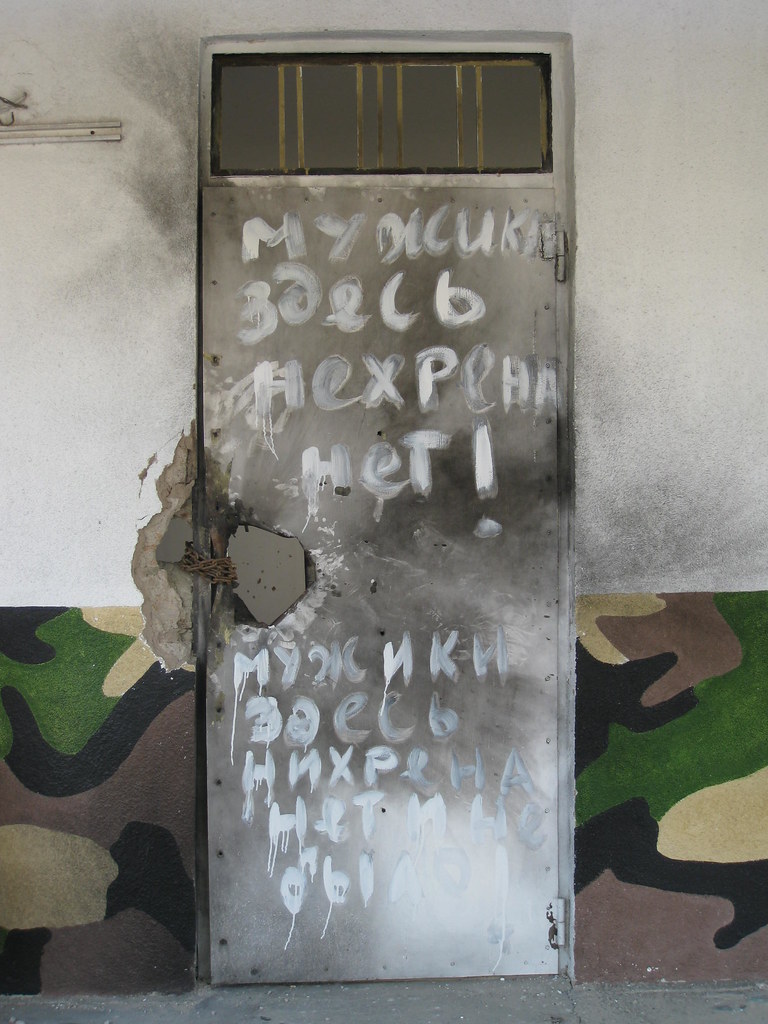
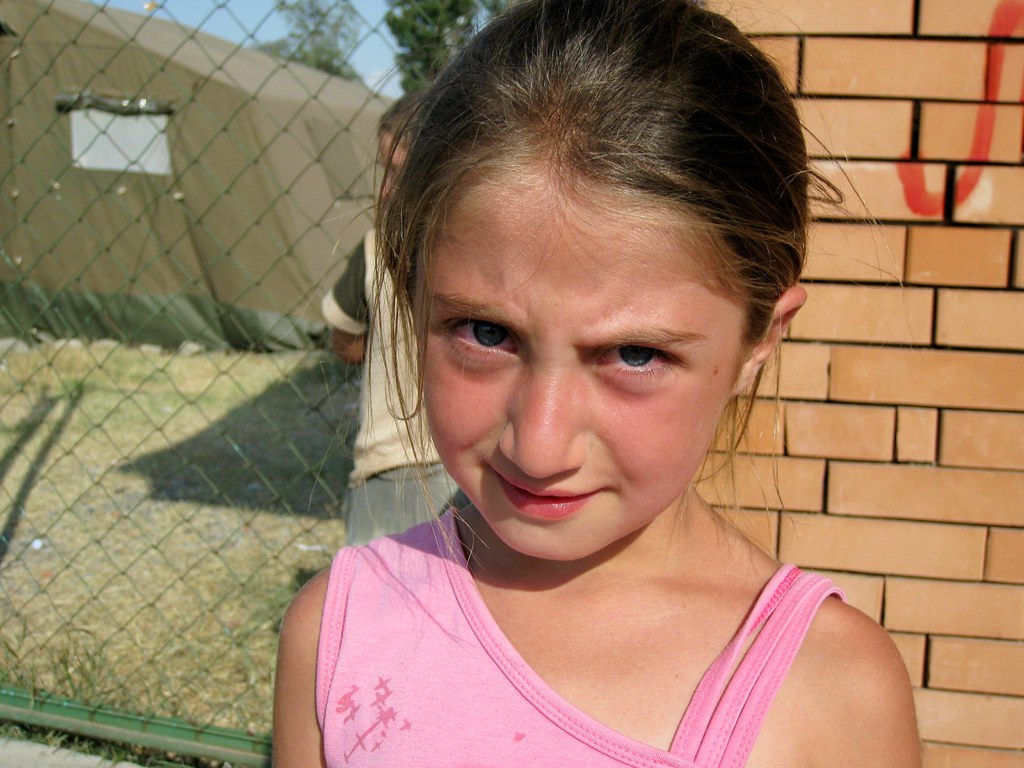

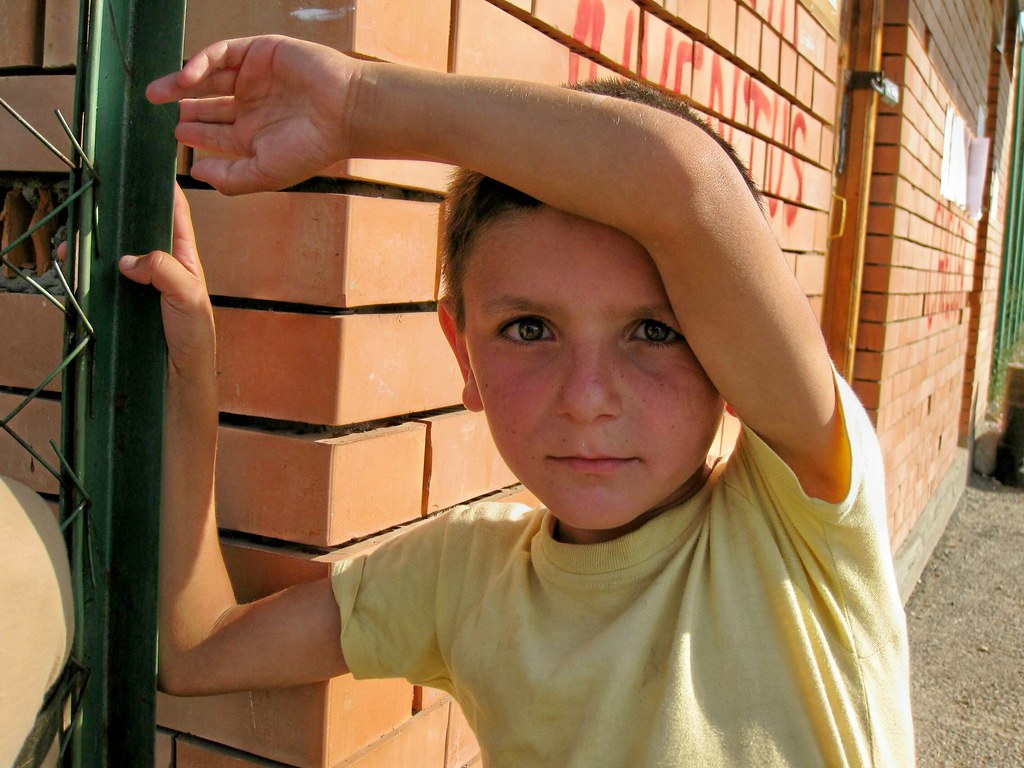
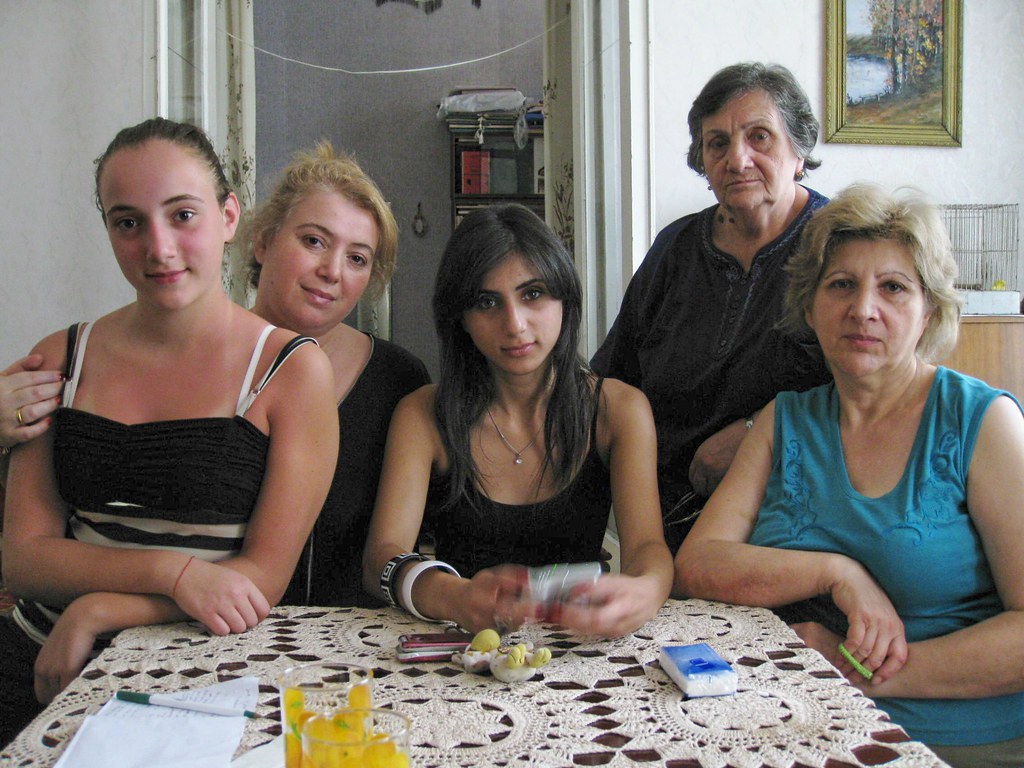
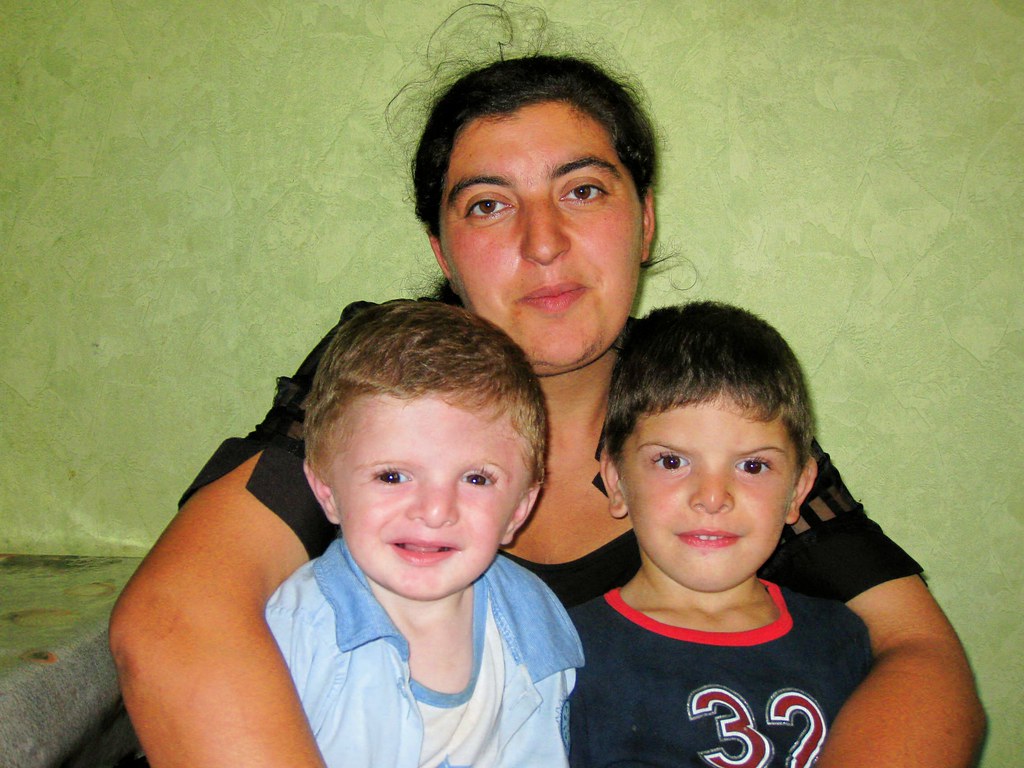











No comments:
Post a Comment